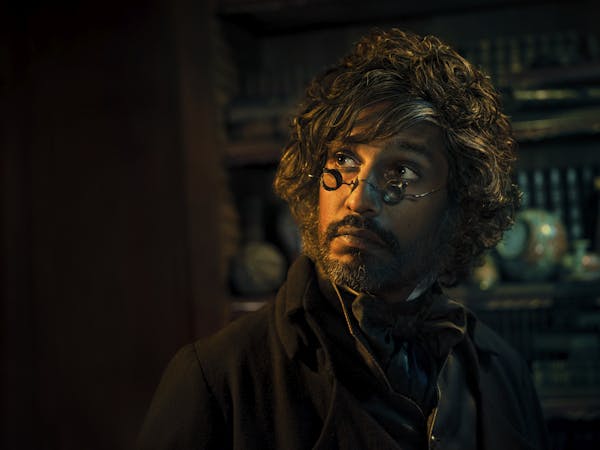Community, Leadership, Experimentation, Diversity, & Education
Pittsburgh Arts, Regional Theatre, New Work, Producing, Copyright, Labor Unions,
New Products, Coping Skills, J-O-Bs...
Theatre industry news, University & School of Drama Announcements, plus occasional course support for
Carnegie Mellon School of Drama Faculty, Staff, Students, and Alumni.
CMU School of Drama
Wednesday, April 05, 2023
Great Expectations: why it's not historically inaccurate for a Dickens character to be black
theconversation.com: A new BBC adaptation of Charles Dickens’ Great Expectations by British screenwriter Stephen Knight has hit screens across Britain, to immediate controversy from some viewers who criticised the colour-blind casting that involved non-white actors playing important characters.
Subscribe to:
Post Comments (Atom)

2 comments:
The recent article on The Conversation about the representation of black characters in Charles Dickens' works is an important reminder that historical accuracy isn't always as clear-cut as we might think. While it's true that Dickens wrote during a time when racial prejudice was widespread and institutionalized, that doesn't necessarily mean that his stories couldn't feature black characters.
As someone who has always liked Dickens' writing, this article has made me think more deeply about the way that historical accuracy is often used as a justification for excluding diverse perspectives from stories. While it's important to strive for accuracy and avoid anachronisms, we should also be aware of the ways in which our assumptions about the past can limit our ability to tell more inclusive and representative stories. By embracing the complexity of history and the diversity of experiences that have shaped it, we can create richer and more nuanced narratives that reflect the full scope of the human experience.
I would rather have a story that is diverse and reimagined for our world today over a story that is whitewashed in the name of “authenticity.” Plus, as this article explains, people who get up in arms over having white actors for “authenticity’s” sake often don’t know what they’re talking about. I think it’s really important to unpack what the article says about the harmful “neutralizing view” on history. The mainstream historical narrative tends to accept the white European lens as the “default”, when that is actually a deeply hurtful perception. People who fight to keep characters white for no reason other than because that’s how they personally see them, or because they want to see themselves reflected, ought to take a step back and realize that “historical accuracy” is a poor excuse for meaningless exclusion. This color-conscious retelling of Great Expectations probably actually enriches the meaning of the story.
Post a Comment